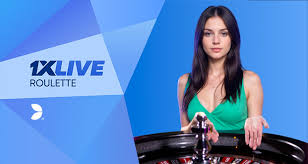
Whether you are curious about modern wagering mechanics or seeking to refine a long-term approach, platforms like sport betting online 1xbet have made sport betting online accessible to millions — but accessibility does not guarantee success. This article outlines principles, tactics and discipline that separate recreational bettors from those who profit sustainably or at least preserve their bankrolls over time.
Understanding the marketplace is the first step. Sport betting online is essentially a marketplace where bookmakers set odds that reflect probabilities and incorporate a profit margin (the vig). Odds are the translation of probability into price; fractional, decimal, and moneyline formats display the same information differently. Learning to read and convert odds quickly allows you to compare lines across sportsbooks, spot mispricings, and calculate implied probabilities.
Bankroll management is arguably the single most important skill. Decide in advance how much money you can reasonably allocate to betting — an amount you can afford to lose without affecting your daily life. Use unit sizing (a percentage of your bankroll per bet) to control variance. Conservative approaches often recommend 1–2% per wager for flat-betting, while more aggressive bettors might use a Kelly-derived fraction to size stakes according to perceived edge. The goal is to survive losing streaks and capitalize when you have an informational advantage.
Value betting is the fundamental edge-seeking strategy. A value bet occurs when your assessment of an outcome’s probability is higher than the implied probability suggested by the bookmaker’s odds. To find value, do your own research — analyze form, injuries, tactical matchups, weather conditions, and historical trends. Use statistical models when possible, but be wary of overfitting and small sample biases. Consistently identifying small edges and staking appropriately compounds over time.
Market selection matters. Major leagues attract lots of attention and sharp money, which usually tightens lines and reduces exploitable opportunities. Niche markets — lower divisions, less-followed leagues, or futures markets earlier in the season — can offer more inefficiencies for informed bettors. However, niche markets can be noisy and thinly traded; limit exposure and account for larger variance.
Line shopping is a simple habit with a measurable impact. Different sportsbooks quote slightly different odds for the same event. Having accounts with multiple reputable bookmakers lets you take the best available price, which improves long-term ROI. Use price alerts and comparison tools to ensure you never leave value on the table.
Live or in-play betting adds speed and flexibility. Watching games live lets you react to momentum shifts, tactical changes, or sudden injuries. But live markets move quickly and often reflect real-time consensus, which raises the bar for making profitable calls. Predefine scenarios where you feel confident in-play, set strict stop-loss rules, and avoid impulsive bets driven by emotion.

Understand the types of bets and how variance affects them. Moneyline bets are straightforward but can have long tails. Point spreads and totals often offer more consistent edges if you can model margins accurately. Prop bets and exotic markets can be lucrative but are frequently designed to attract casual action and carry higher house edges. Treat them as small parts of a diversified approach rather than core strategies.
Use data and tools wisely. Many bettors combine public data sources, advanced statistics and third-party models to build an edge. Learning basic programming or spreadsheet modeling helps you test hypotheses and reduce subjective bias. Track every bet meticulously — market, stake, odds, result — then analyze ROI, return by market, and your longest losing/winning streaks. Honest record-keeping identifies strengths and weaknesses faster than intuition alone.
Bonuses and promotions can be useful but read the fine print. Welcome offers, free bets, and cashbacks can enhance value when terms are fair. Wagering requirements, odds limits and withdrawal restrictions can negate perceived benefits. Treat promotions as occasional boosters rather than central revenue sources.
Psychology is often underestimated. Tilt — emotional decision-making after losses or wins — destroys disciplined staking. Establish pre-commitment rules: maximum daily loss, limits on number of bets, and mandatory cooling-off periods after big swings. Accept that variance is natural; focus on process over short-term results. If you notice compulsive behavior, use built-in tools like deposit limits, self-exclusion, or seek professional help.
Legal and regulatory awareness is essential. Sport betting online is regulated differently around the world. Ensure your activity complies with local laws and choose licensed operators with transparent policies. Reputable sportsbooks offer responsible-gambling tools, clear payout terms and audited randomization where applicable. Avoid offshore or unlicensed sites that lack consumer protections.
Networking and continual learning improve outcomes. Follow credible analysts, join forums cautiously, and test new ideas in small stakes before scaling. Beware of tip services that promise guarantees — if something sounds too good to be true, it probably is. Focus on developing repeatable, objective methods backed by data and rigorous testing.
Finally, remember that entertainment is a valid reason to participate. Not every wager must be a calculated investment; social bets or small-stakes wagers can enhance enjoyment of sports. The difference between a hobby and a harmful habit is control: set boundaries, manage risk, and keep betting within means.
In summary, sport betting online offers a dynamic intersection of analytics, psychology and market economics. Success is built on disciplined bankroll management, rigorous value assessment, smart market selection and emotional control. Combine learning with careful risk control, and you’ll transform gambling from a series of impulsive decisions into a structured activity that maximizes enjoyment and minimizes long-term harm.